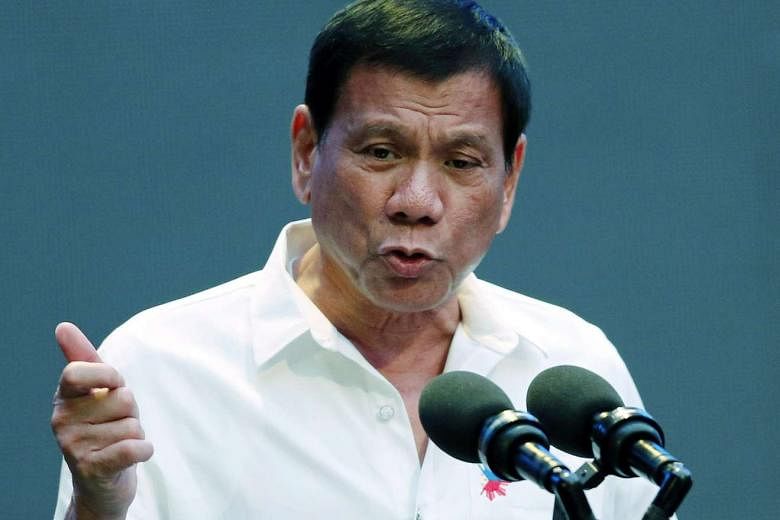MANILA - It's a common refrain I hear, more than 100 days after President Rodrigo Duterte took office on June 30. People say they feel safer now.
Whether that sentiment is true because it is backed by statistics, or just a personal experience and a state of mind, I can't say for sure. I can only speak for myself.
So, do I feel safer now? The short answer: Not really.
I read the statistics: Crime is down by half. I also hear the anecdotes. Community leaders talk about receiving fewer reports of robberies they say are usually committed by drug addicts desperate to feed their habits. Call centre workers working the graveyard shift tell me they worry less now about getting mugged or robbed. Neighbours say they hear fewer ruckuses from rambunctious drug addicts having a "session".
Kudos to the police and the President!
Still, a lot of petty crooks out there seem not to have received the memo yet.
Just a couple of days ago, a friend working for the Red Cross lost her mobile phone to a thief who snatched it as she was using it inside a jeepney. About a month ago, someone stole my daughter's phone while it was plugged to a charger at a common hall in her university.
Also, there's something disconcerting when you know there are executioners-for-hire stalking the streets for targets, and lawmen egged on to go Charles Bronson on criminal suspects.
I have two kids just barely out of their teens. They take public transport. I worry they may have the misfortune of sitting inside a jeepney beside a man marked for death in Mr Duterte's list or matrix of lowlifes who he thinks do not deserve to live.
It has happened before.
I remember Oman Manaois, a 20-year-old altar boy. Craving for a local delicacy, he stepped out of his home one night in July and took a motorised rickshaw. On the way to the market, a known drug peddler in the neighbourhood boarded the rickshaw and sat beside Omar.
Then two men on a motorcycle came. They shot the pusher, then one of them turned to Oman. Oman raised both hands, pleading his innocence. He was shot anyway, once in the heart and, for good measure, in the head.
There have been others.
There was Rowena Tiamson, only 22. She was not on any "watchlist", but she was found in a ditch with her hands tied, her eyes and mouth covered in duct tape, and a bullet wound to her head.
A message on a cardboard read: "Don't be like her. She's a pusher." But she was not. She was a choir girl and an honour student.
There was Danica May Garcia, just five when a bullet meant for her grandfather struck her instead.
There was that district chief who was shot in the head by a policeman simply because he couldn't point out in his neighbourhood who the addicts were.
What is even more disturbing is the deafening absence of outrage.
The popular sentiment seems to be that those being killed deserved to die because they were scums of the earth. What of the innocents? Acceptable collateral damage.
It's probably the distance. When someone you don't know dies, it's just a number on a spreadsheet or a police log. It's easy to pass judgment.
But when it's someone you know dearly, someone you've known from the time she was a small, fragile, helpless baby crying on your shoulder, or a man you can pick out even with your eyes blindfolded because you've become all too familiar with the cadence of his steps, the rhythm of his breathing, and the distinct odour of his sweat, then things don't look so black and white.
But it seems the death of 3,000, or even 5,000, is not enough. It may take 150,000 or more for the rage and grief to pour out.
That, I guess, is the price for "safety", and it is so steep I don't know if it will all be worth it in the end.


